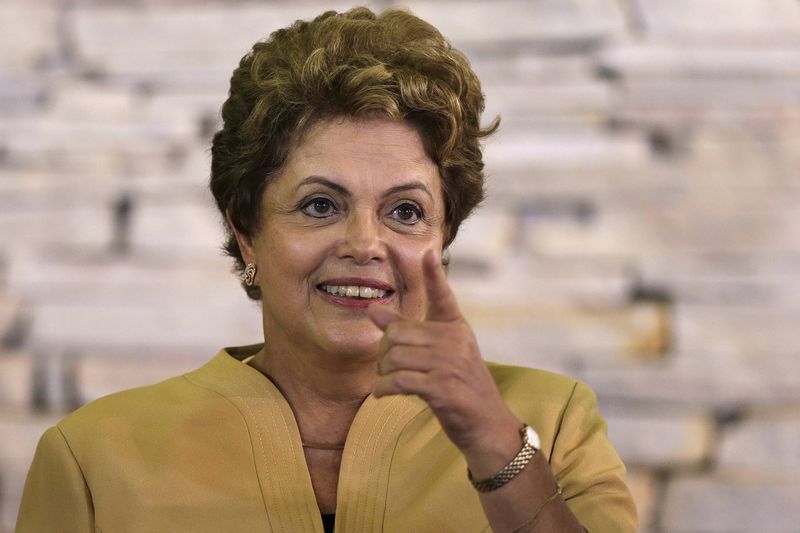BRASILIA (Reuters) - Brazil's President Dilma Rousseff urged her cabinet on Tuesday to embrace fiscal belt-tightening and other measures aimed at restoring business confidence and growth in her second term.
Rousseff pressed the need to clean up the government's overdrawn accounts by reining in waste and doing more with less, a change of economic policy that investors want to see but that has caused frictions within the ruling Workers' Party.
"The fiscal rebalancing that we are undertaking is needed to maintain our course and widen opportunities, preserving social and economic priorities," Rousseff said at her first cabinet meeting since she was sworn in Jan. 1 for a new term.
The leftist leader said the fiscal adjustment will be done gradually and has started with budget cuts for all ministries. Steps will be taken to cut red tape and encourage investment by expanding private concessions in infrastructure projects.
Rousseff said her government was committed to establishing rigorous corporate governance at state-run oil company Petroleo Brasileiro SA, which is at the centre of a corruption scandal that threatens to implicate members of her party and its coalition allies.
Prosecutors investigating the billions-of-dollars graft and bribery racket have arrested two former Petrobras directors and scores of executives of Brazil's top construction companies charged with paying kickbacks that were funnelled to politicians.
Rousseff called for the punishment of those involved without damaging the private engineering companies building many of the country's big infrastructure projects that risk coming to a halt and further depressing a stagnant economy.
"We should punish people and not destroy companies," she told her cabinet.

Rousseff said the government is doing all it can to guarantee electricity supplies in Brazil, which faces the threat of power shortages and water rationing due to drought that has emptied the reservoirs of hydroelectric dams.